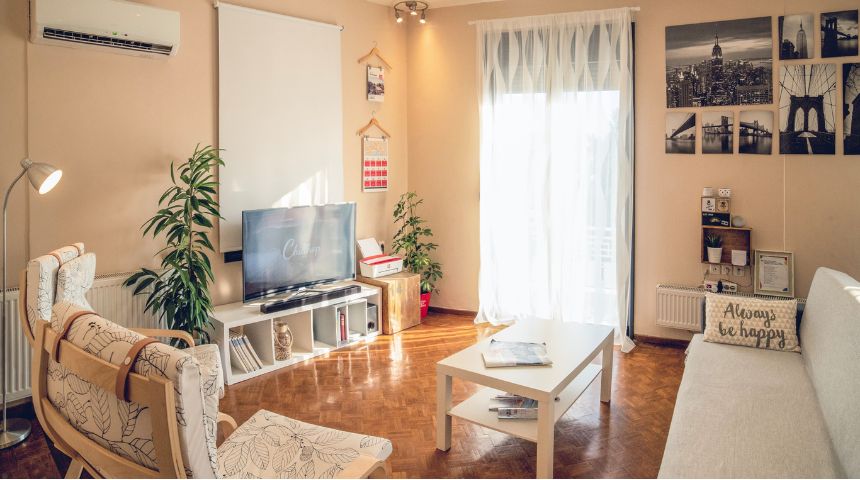Why Insurance is Essential
Owning rental properties can be a lucrative investment. What some landlords may not realize is that it can also come with serious risks. Landlords are generally responsible for keeping their properties safe and habitable for their tenants. However, unforeseen accidents can lead to expensive lawsuits. Hearing this, you might be thinking, “Well, that won’t happen to me.” You might be surprised to learn that tenants file 90% of personal injury lawsuits against landlords in the rental housing industry. That’s where landlord liability insurance comes in – to act as a safety net, protecting you in these situations.
In this article, we’ll cover the basics of landlord liability insurance so you can ensure your rental properties are well-protected and give you peace of mind.
Understanding Landlord Liability
First off, let’s start by exploring what landlord liability is. By definition, landlord liability refers to a landlord’s legal responsibility for the safety and well-being of their tenants, which includes the condition of their rental properties. While this is the general definition of landlord liability, it covers a wide range of situations from maintaining habitability standards to being held liable if a tenant gets injured due to deferred maintenance.
What Does Landlord Liability Insurance Cover?
Landlord liability insurance essentially acts as a safeguard against any unexpected events that might occur during your time as a landlord. While it doesn’t cover damage to the property, it protects you against situations where you’re found at fault because of the ownership, maintenance or use of the rental property.
What does this mean, exactly? One large risk factor where landlords can be found at fault is tenant injuries that happen because of unaddressed maintenance issues. For example, if a tenant gets injured from an electrical shock due to faulty wiring, you might be responsible for paying the tenant’s medical expenses and any legal fees.
Some other factors that are covered by landlord liability insurance include failing to provide proper security for your tenants or not taking measures to stop your tenants from engaging in illegal activities.
Why Do Landlords Need Liability Insurance?
Just like many other things in life, there’s an inherent risk in being a landlord. Even with meticulous property maintenance, unexpected incidents can happen. In 2022, there were an estimated 178,400 preventable injury-related deaths that occurred in homes and communities. Tenant injuries could lead to hefty medical bills and costly legal battles.
Landlord liability insurance serves as an essential line of defense to protect you from these potential financial burdens. Having this protection gives you peace of mind as a landlord that you won’t be solely responsible for any surprise mishaps.
How and Where to Get Landlord Liability Insurance
It’s a fairly easy and straightforward process. There are plenty of major insurance companies and brokers that offer or specialize in landlord policies. You can request quotes from companies or brokers directly through their website or by calling them. During this process, you can expect to provide details about your property, the number of units and any potential risk factors associated with it.
Once you have quotes from all of the insurance companies that you’re interested in, make sure to compare coverage amounts, deductibles, exclusions and premium amounts. If you’re still unsure about any of the policies, reach out to the insurance company to make sure that it aligns with your specific needs and risk tolerance. Taking the time to carefully review all of your options allows you to secure a policy that fits exactly what you need.
Other Types of Insurance to Consider
While landlord liability insurance is a valuable tool to protect you against potential tenant injuries and other incidents, the scope of what it covers is relatively limited. Here are some other related types of insurance to consider:
- Property insurance. Covers the physical structure of the property if any damage occurs from incidents like fire, theft and vandalism. This type of insurance is usually purchased by the property owner or landlord, not the renters.
- Homeowners insurance. Designed for owner-occupied residential properties, which means that rental properties are excluded. It usually covers the property’s structure, personal belongings and additional liability protection for the homeowner.
- Renters insurance. Protects renters from any financial losses that are incurred due to damage to their belongings or personal liability claims. It can cover theft, fire damage and even temporary living expenses if the rental property becomes uninhabitable.
Final Thoughts on Landlord Liability Insurance
Landlord liability insurance is an essential tool that protects you and your investments. Having this protection as an invisible shield keeps you prepared for any unforeseen circumstances. Remember, a little planning and investment in insurance can save you money and stress down the road. Rather than waiting for a disaster to strike, take the steps to secure the peace of mind that comes with knowing your rental properties are well-protected.

